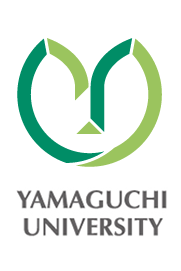Mission, Vision & Policy
For Master's Program in Technology Management (Professional), Graduate School of Innovation and Technology Management, Yamaguchi University
Diploma Policy (DP)
We aim to nurture technology-management professionals who are capable of tackling problems from both technological and managerial perspectives and producing innovative outcomes. Aligned with Yamaguchi University's overarching Diploma Policy, we hereby establish the following as the Diploma Policy for the Graduate School of Innovation and Technology Management. Students who satisfy these criteria will be conferred the degree of Master of Technology Management (Professional).
1. Advanced Expertise and Scholarly Inquiry
1. Attain, through interdisciplinary study, a deep understanding of innovation--its significance and the methodologies that foster it--and apply this knowledge proactively in practice. [DP1-1]
2. Uphold rigorous ethical standards and demonstrate a collaborative spirit in business activities, thereby contributing meaningfully to society. [DP1-2]
2. Broad Intellectual Foundation
1. Master the knowledge essential for the organizational execution of R&D and business initiatives, accurately identify relevant challenges, and address them with rational efficiency. [DP2-1]
2. Comprehend fundamental economic principles and value‑assessment techniques to convert business outcomes to economic value. [DP2-2]
3. Autonomy, Collaboration, and Realization of Ideas
1. Recognize the strategic importance of intellectual property and master the frameworks and methodologies needed to leverage it in corporate settings, proactively enabling the generation and protection of novel ideas as intellectual assets. [DP3-1]
2. Prepare to excel in global environments by understanding diverse societies and cultures, formulating hypotheses, designing research methodologies, and conducting research autonomously. [DP3-2]
Curriculum Policy (CP)
To ensure students fulfill the Diploma Policy, the program commits to the following principles for curriculum structure, teaching methods, and assessment of learning outcomes.
1. Curriculum Structure
• Overview: The curriculum consists of foundation courses (12 credits), advanced and applied courses (minimum 20 credits), special courses (2 credits), and specific research (8 credits).
• Foundation Courses (compulsory):
Provide essential theories and analytical techniques in both technology and management that every technology‑management professional must master. (DP1‑1, DP1‑2, DP2‑1, DP2‑2, DP3‑1)
• Advanced Courses (selectively compulsory):
Enable students to systematically deepen the theories and methods learned in foundation courses, tailored to each student's background. (Addresses DP1‑1, DP1‑2, DP2‑1, DP2‑2, DP3‑1)
• Applied Courses (selectively compulsory):
Apply knowledge from foundation and advanced courses to contemporary issues, sharpening students' ability to put theory into practice. (DP1‑1, DP1‑2, DP2‑1, DP2‑2, DP3‑1)
• Special Courses (optional):
Enhance foreign-language communication skills and familiarity with global technology-management practices, preparing students for international engagement. (DP3‑2)
• Specific Research (compulsory):
Challenge students to tackle self-defined problems and craft solutions to organizational or societal challenges from both technological and managerial perspectives. (DP1‑1, DP1‑2, DP2‑1, DP2‑2, DP3‑1)
2. Teaching Methods
• Blend traditional lectures with case-based exercises to connect theoretical frameworks and real-world business practice, fostering broad technological literacy, mastery of technology-management theory and skills, and strategic thinking.
• Implement active‑learning techniques--such as group work and discussions--to encourage autonomous engagement and promote inquiry-based learning, problem-solving, and experiential education.
3. Assessment of Learning Outcomes
• Rigorously assess performance through examinations and submitted reports.
• Upon program completion (two years), conduct a comprehensive review of the credits earned in foundation, advanced, applied, and special courses, together with the outcomes of the specific research.
Admission Policy (AP)
At the Graduate School of Innovation and Technology Management at Yamaguchi University, we aim to cultivate technology-management professionals who can tackle challenges from both technological and managerial perspectives to produce innovative results. Accordingly, we seek applicants who possess the following attributes:
Desired Student Profile
1. Applicants who aspire to play a central role in driving innovation--within companies, organizations, regions, or internationally--and who are committed to generating and applying its outcomes.
2. Applicants who, from a strategic perspective, are eager to harness technology to create value and solve management challenges, intend to master the requisite theories and methods, and aim either to lead themselves, support senior leadership, or assume future executive responsibility.
3. Applicants who seek to pursue new ventures or elevate existing businesses and roles by creating and leveraging intellectual property and by applying and systematizing their accumulated professional experience.
Admissions Selection Policy
To admit applicants who possess the abilities and aptitudes suited to study in the Graduate School of Innovation and Technology Management, Yamaguchi University, we conduct a multifaceted and holistic evaluation of applicants' competencies.
• For General and Recommendation‑Based Admissions:
Candidates are assessed through an interview and a comprehensive review of application materials.
• For Special Admissions for International Students & Transfer Examination (Partner Universities):
Candidates are evaluated based on the submitted application documents.
Key Evaluation Points
|
Selection Criteria |
Specialized knowledge and skills needed to conduct theoretical and practical research |
Ability to think logically and critically, and apply to problem-solving |
Rich humanity, social awareness, ethics, and cooperativeness |
|
Interview |
◎ |
◎ |
◯ |
|
Application documents |
◎ |
◎ |
◯ |
◎ = assign higher priority during evaluation
◯ = assign high priority during evaluation

